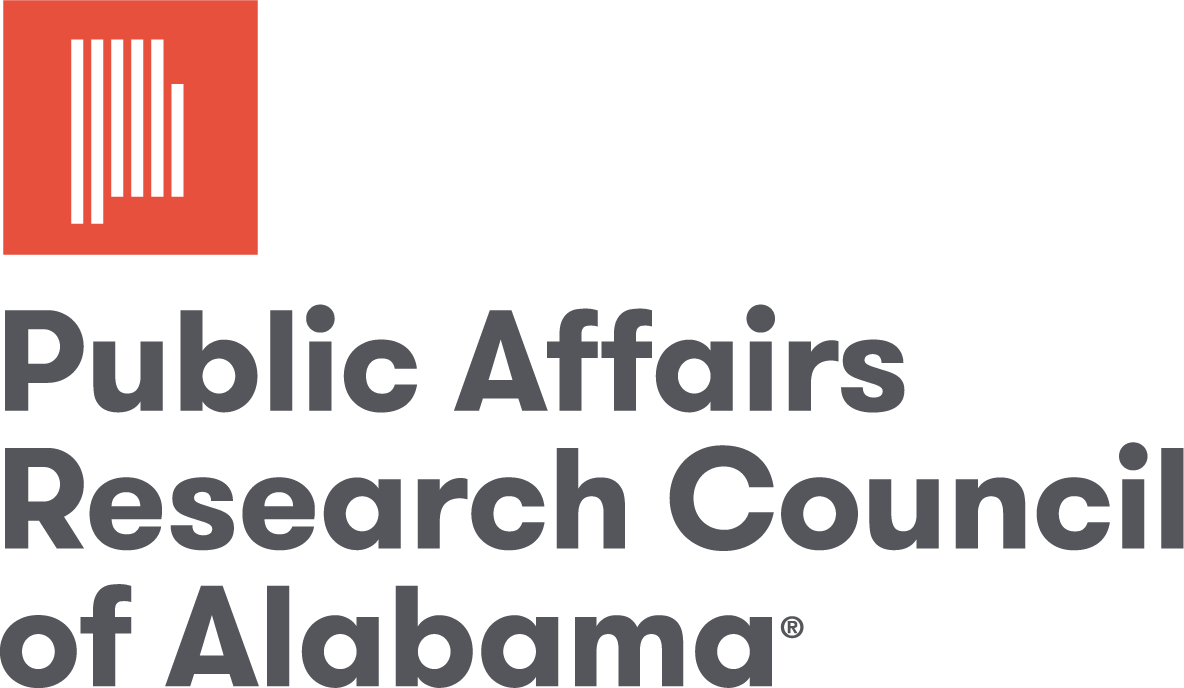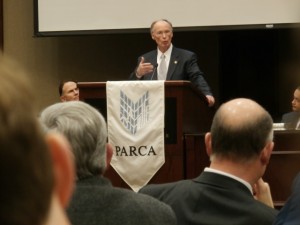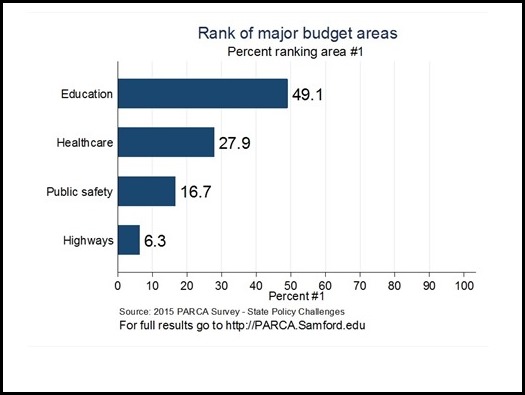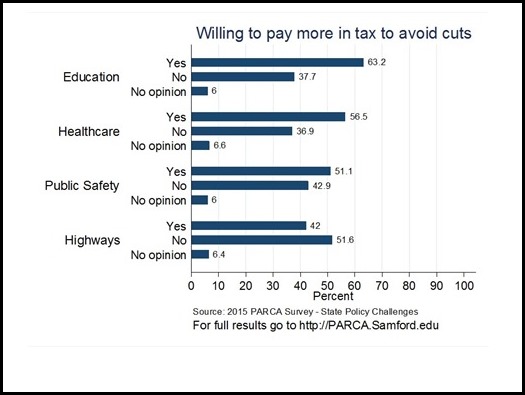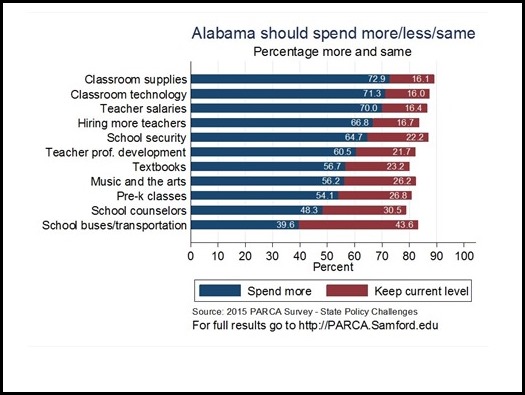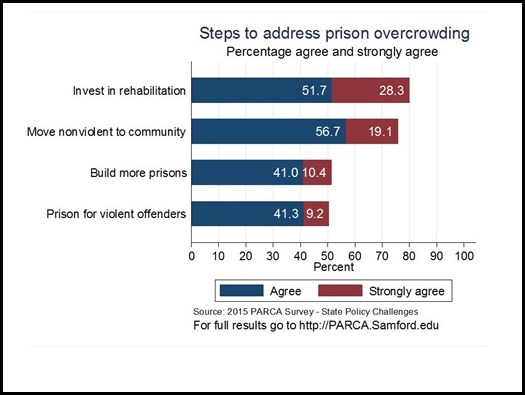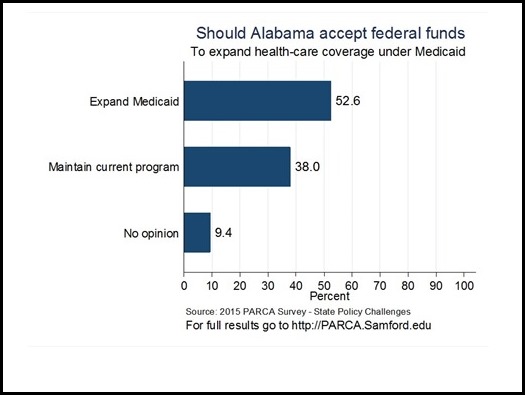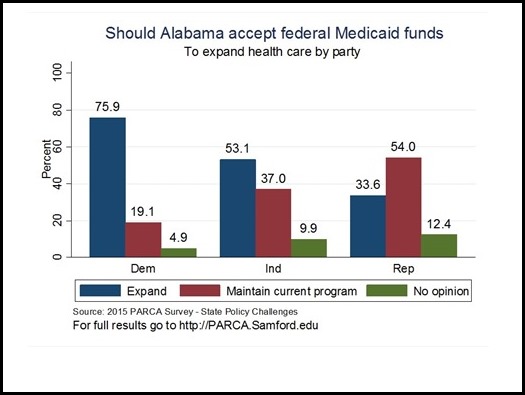Speaking before a sell-out crowd of more than 400 at the Harbert Center on Friday, Feb. 13, Gov. Robert Bentley said he will propose bold solutions in the face of a steep budget shortfall.
In his luncheon address, Bentley said that during his first term he had held the line on spending, shrunk the state workforce, and encouraged efficiency and reform. While efforts along those lines will continue in his second term, Bentley has concluded that additional tax revenue is needed for the state to balance its budgets. The state faces a shortfall in the general fund budget of more than $250 million. The state’s spending on education is still below its pre-recession levels.
Bentley’s remarks followed a morning of presentations on major areas of state spending: Corrections, Medicaid, and education. In each of those areas, leaders have examined the current situation, set goals for improvement, and devised strategies to pursue those goals.
In all three cases, investments in reforms should avert higher costs in the future and produce better outcomes for citizens. PARCA Executive Director Jim Williams said the careful analysis and goal-oriented thinking in these departments should be an inspiration to the rest of state government. It points toward a better approach to management and budgeting, which is vitally important in a state that collects less tax revenue per capita than any other.
The morning featured the following presentations:
State Sen. Cam Ward and Alabama Sentencing Commission Executive Director Bennet Wright spoke on solutions to the state’s prison overcrowding problem. Wright outlined proposed changes to sentencing, prisons, and community supervision.
Alabama State Health Officer Don Williamson explained plans to move more beneficiaries of the Alabama Medicaid System away from fee-for-service system into managed care.
Care Network of East Alabama Executive Director Kim Eason and Chronic Care Coordinator Julie Wells explained how a pilot version of Medicaid’s new approach is working to improve patient outcomes and decrease use of costly hospital care.
And finally, Alabama State Superintendent of Schools Tommy Bice presented an update on the progress of Plan 2020. The high school graduation rate is climbing, but schools have serious challenges ahead in closing the achievement gap between low income students and their middle class peers and in making sure high school graduates are ready for college and career. Some of those challenges are illustrated in graphics from Jim Williams’ presentation, on Producing College and Career Ready Graduates.
